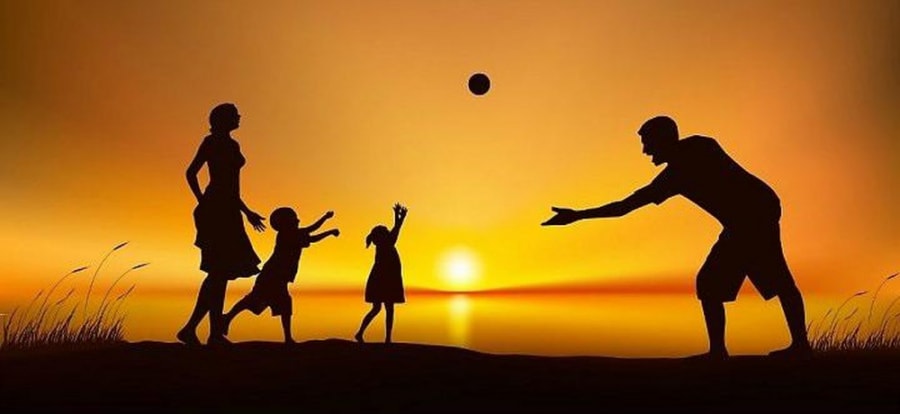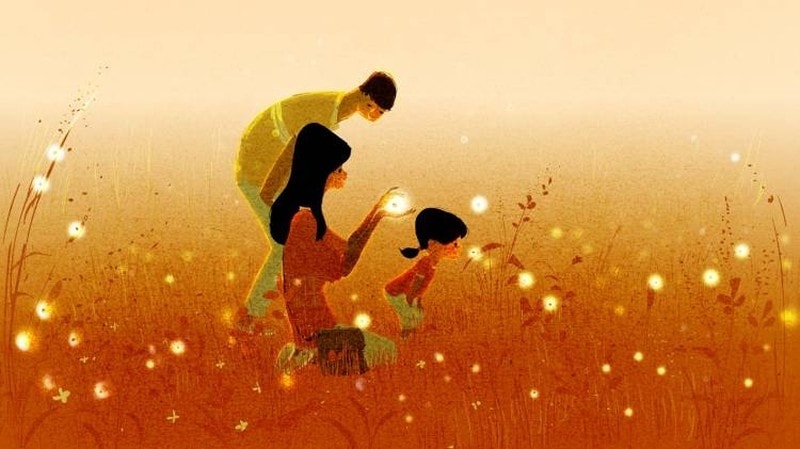When despair takes the shape of love
When despair strikes, people often fall into the trap of unconscious selfishness, thinking that they know what is best for their children, that without them, their children will suffer more. But in fact, that is when we are depriving our children of their right to choose, their right to grow up, to stumble, to stand up and find their own joy. Maternal and paternal love cannot be distorted by personal pain, turning into an act of no return.
In recent days, the heartbreaking story of a father and his two little daughters has shaken public opinion. This is not the first time we have heard such haunting stories. Parents, in despair, hugged their young children and jumped into the cold river, or chose to leave together in the middle of the night. The most haunting question is not “Why did they do that?”, but “What caused love to become so distorted?”.
People say there is no love greater than the love of parents. Is it not that they no longer love their children, but perhaps their love is accompanied by despair, love to the point of thinking that death is the only way out, the way to "protect" their children from the sufferings of life? But behind those actions is a fragile line between sincere love and unconscious selfishness, when despair clouds reason, making us forget that true love must give children the right to live, to hope.

I think about those fathers and mothers - ordinary people, who must have struggled with debt, family conflicts, broken marriages, or invisible pressures of life. In their dark moments, they saw this world as too harsh, too hopeless for their children to face. They held their children, whispered their last words of love, and chose to end it all. But was that love? Or was it just fear disguised as sacrifice?
None of us have lived their lives and therefore have no right to judge, but we cannot help but feel pain when we think of innocent children, young creatures, who have not yet had the chance to explore the vast world and endless happiness, but have been swept away by the extreme decisions of adults. Love, which was supposed to be the light that guided the children, has now become the darkness that swallows their future.

That line of love is so fragile that it can easily be erased. When despair strikes, people often fall into the trap of unconscious selfishness, thinking that they know what is best for their children, that without them, their children will suffer more. But in fact, that is when we are depriving our children of their right to choose, the right to grow up, to stumble, to stand up and find their own joy. Maternal and paternal love cannot be distorted by personal pain, turning into an irreversible act. Do they ever stop and ask themselves: “Does my child want this? Does my child deserve to continue living, even without me?”
That makes me wonder about the responsibility of being a parent. Love is not about possessing, not about taking your child away with you to avoid suffering. It is the strength to live on, to seek help, to show your child that life is worth living even though it is difficult. True love is knowing how to let go when needed, knowing how to seek out friends, family, or support organizations to overcome the storm. It is teaching your child that despair is only a moment, and hope is always ahead. It is living as an example, so that your child can see that even if life pushes you to the brink, you can still choose to stand up, for your child, for yourself.

Loving your child is not just about giving them an education, but also about teaching them how to stand up when they fall. It is about teaching them to believe that suffering is not the end. It is about allowing them to see their parents weak, but still trying to live. The greatest love is not about sacrificing to the point of forgetting themselves, but about not having the heart to drag their children down with them even when they fall. A child, even if living in poverty, can still grow up and be happy if they are raised with the belief that life is still worth living. But that child will never have the chance if adults conclude for them: "This world has no place for you." In fact, children do not need perfect parents, they just need parents who do not give up.
Parents need to learn to love responsibly, which requires both knowledge and courage. Knowledge means understanding mental health, knowing when to seek professional help, using social services instead of hiding their worries. Courage means admitting when you are weak, stepping out of shame to save yourself and your child. A truly strong parent is one who calls others when they cannot go it alone, not one who thinks they can save by ending things.
Society needs to be more proactive in building “safe arms” for the vulnerable. We need more effective hotlines, accessible psychologists, and communities that listen rather than condemn or judge. The media and press, when reporting on sensitive cases, should consider their language to avoid creating a copycat mentality or portraying despair as a “heroic” act. But above all, everyone around us needs to learn how to recognize the signs of despair in order to promptly pull someone back to life. A question, a piece of advice, sometimes saves many lives.
Today, if you are tired, hug your child tightly, not to leave, but to find a way back together with hope. Love, in the end, is knowing how to let your child live fully, freely and confidently moving forward. And sometimes, just choosing to stay is the greatest act of love for your child.


